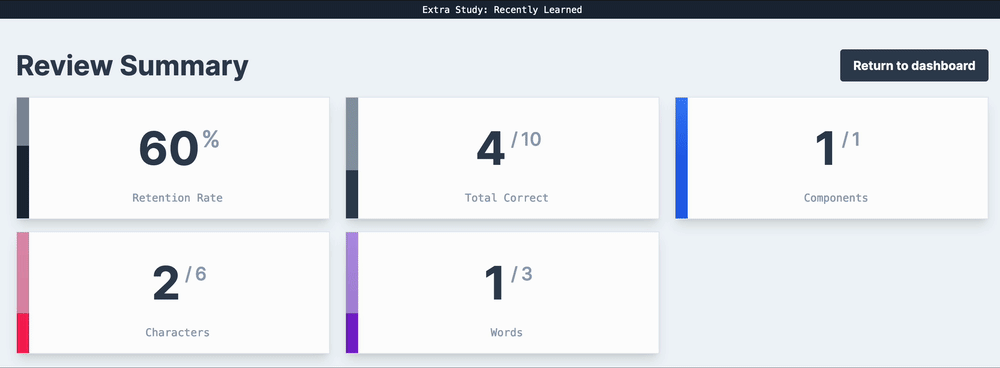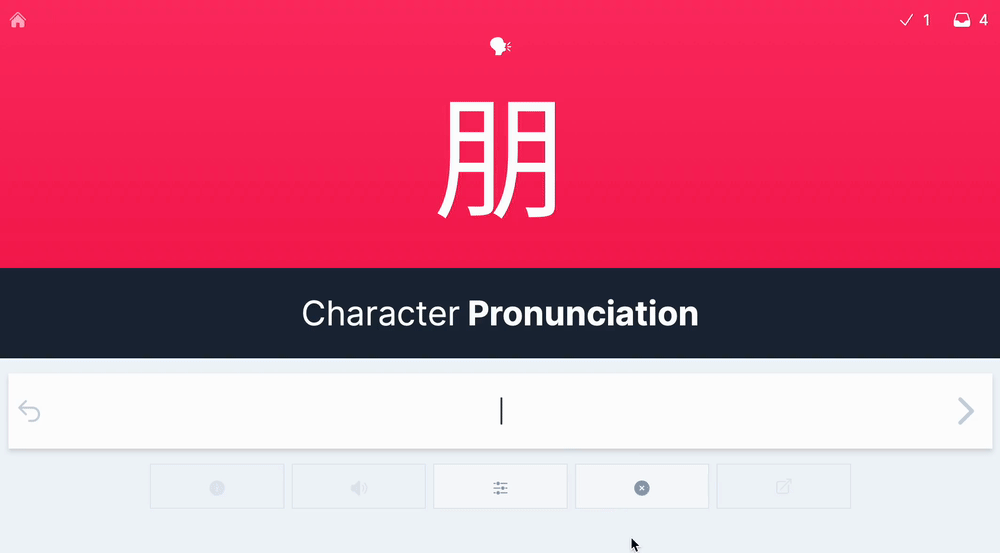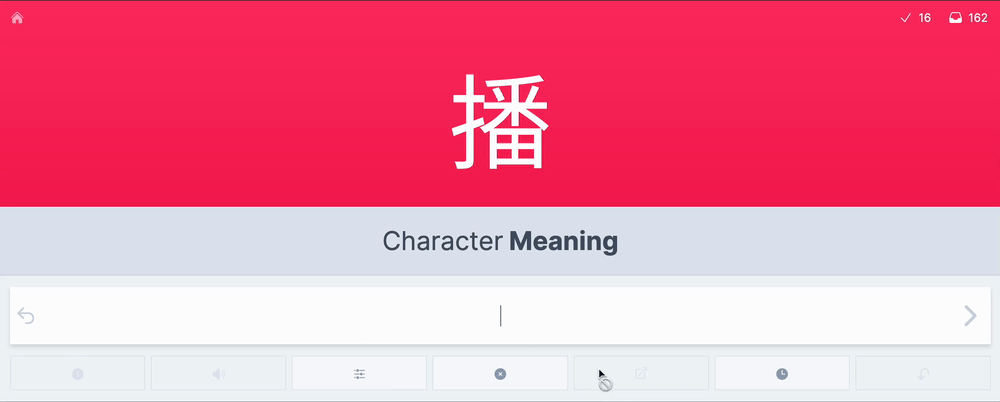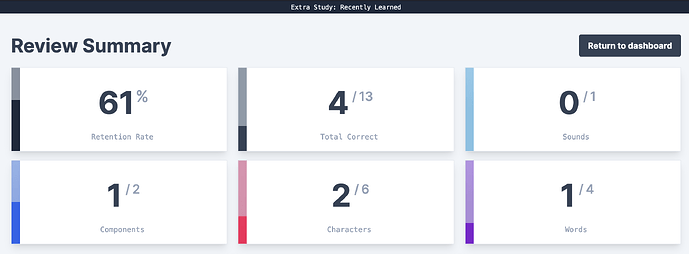Hello, got some updates you’ve probably seen around the forums ![]()
Daily Review Limit
There’s been issues of review accumulations. Sometimes you’ll have days with just a ton more reviews, making it inconsistent and unrewarding.
So there’s now a Review Limit which allows you to set a “goal” of the number of reviews you want to do each day. This allows you to make reviewing more consistent (it’s at most X amount of reviews each day) and also whittle down a backlog in case you’re coming back (it’s not fun to have 1k reviews presented to you as if you must complete them all today!)
You can read more in the Docs.
This change was motivated through feedback from @enicolle & @idrinkwhisky ![]() Thanks!
Thanks!
Drill down on mistakes in Extra Study
Previously if you wanted to do some extra studying, when you finish the summary was a little lacking:
Now when you finish some extra studying, you’ll see which ones you got right and wrong, as well as an ability to drill down further on the ones you missed:

Pinyin Validation, More Lenient Typos, Card label colors
Recently we added the ability to validate your pinyin input. Anything that’s invalid pinyin will be denied – we only recommend flipping this setting on when you’re comfortable with pinyin ![]()

In addition to pinyin validation, we’ve also added more leniency to typos. Previously for all answers if you were off by more than one edit-distance, it would be marked as wrong.
To account for longer answers, we gradually increase the leniency. So now you don’t have to worry as much about typing perfectly:

I think @tuobiyasi suggested these changes, so thanks!
You may also notice that Meaning questions have a light background now. Hopefully this makes it easier to differentiate between pronunciation and meaning questions ![]() Thanks for both this suggestion & the pinyin validation @lorentz!
Thanks for both this suggestion & the pinyin validation @lorentz!
New SRS Algorithm beta
The accumulation of reviews is something we’ve been hoping to solve, so we decided to take another look at our SRS algorithm and implement a new one ![]()
The new SRS algorithm is a modified SM-2 algorithm. It has a few improvements over the last one:
- You either get the item right or wrong. Additional incorrect answers are no longer considered.
- If you get it wrong, the current interval is halved. e.g. If you see an item after 10 days and get it wrong, you’ll see it again in 5 days.
- How long an item has been ready to review is factored into the next SRS interval when you get the item right
- A bit more aggressive spacing to distribute the load and allow SRS to work its magic
We hope all of these changes helps tackle the mountain of reviews.
You can see roughly the new timings within the docs.
If you want to opt-in, just a heads up: because of the new SRS timings, previous stages no longer correspond. You may see “demotions” of the SRS stage of an item, but that’s only because we’ve bumped the intervals of all the stages ![]()
To opt in, just navigate to your application settings and toggle the “Enable new SRS algorithm”:

I think that’s all for now. Happy studying!
